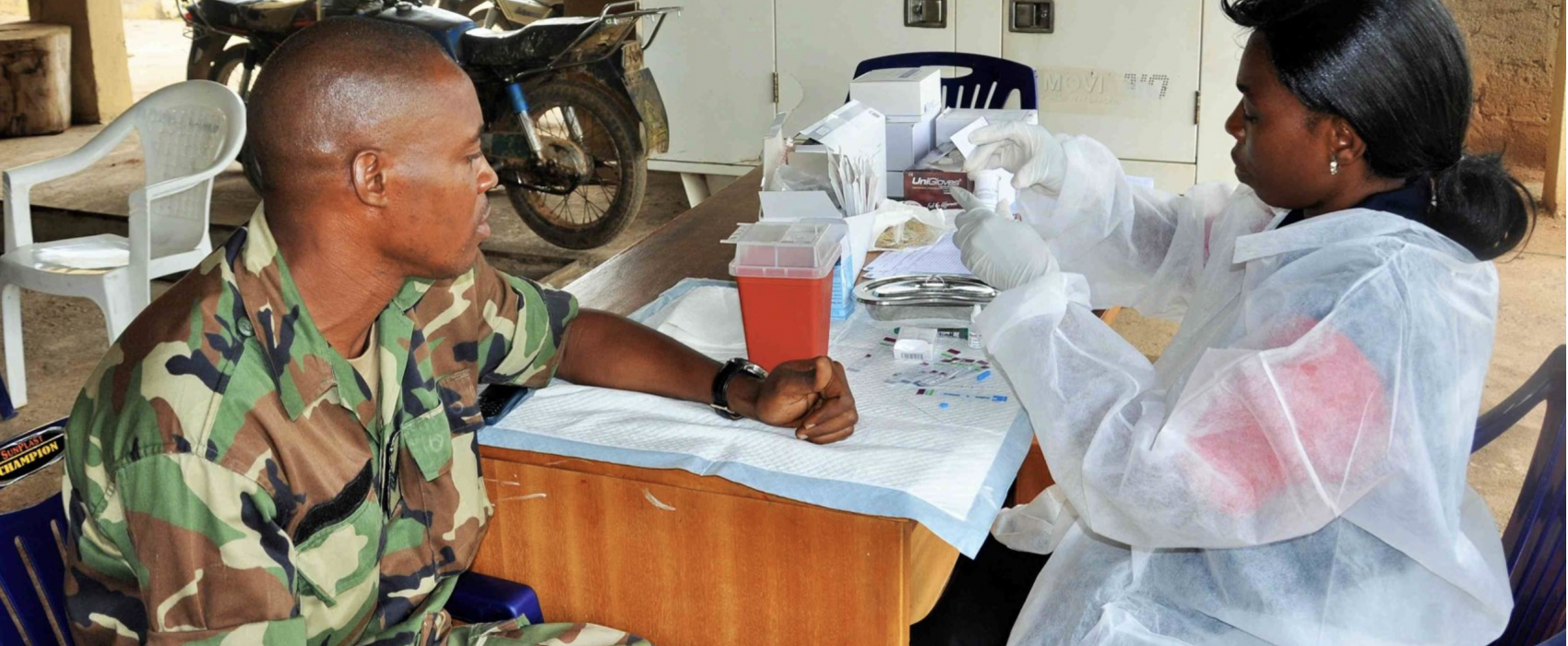MHRP Nigeria, known locally as the Walter Reed Program-Nigeria, has cultivated a strong partnership with the Nigerian Armed Forces to implement a comprehensive HIV prevention, care and treatment program supported by PEPFAR. Since MHRP began working in Nigeria in 2005, the program has developed leadership, clinical, laboratory and logistical capabilities within both military and civilian populations to strengthen health systems and infrastructure for long term sustainability.
In an effort to enhance capacity and improve service delivery to prevent HIV transmission and ensure viral load suppression, MHRP supports HIV testing and antiretroviral treatment programs at Nigerian Ministry of Defence (NMOD) health facilities and barrack communities. In coordination with a local partner, the program engages members and their partners with a comprehensive package of clinical and community-based prevention, care and treatment services in Lagos and Rivers States.
The program's strong partnership with the Nigerian military and its large network of medical facilities and well-trained personnel creates a supportive climate and framework for program evaluations, surveillance and research.
Program Highlights
One-Stop Shop
MHRP conducted a research study in Nigeria that showed drop-in community centers can be an effective model for prevention, care and treatment of HIV. The community health center, or One-Stop Shop (OSS), serves as a space for HIV and STI prevention, testing and treatment, but also offers other services including cervical cancer screening and behavior change communication. The center is primarily run by clinicians with support staff including members of the community.
Community ART teams expand the reach of the OSS in the community, offering a wide range of prevention, care and treatment services, so most clients do not have to go into a physical office. This model has shown promising results and plans are underway to expand the network to ensure safe access to high quality services to a larger section of the population.
Community advisory boards inform and monitor the work of the OSS and the community ART teams, ensuring that all services are in line with the needs of the populations served.
